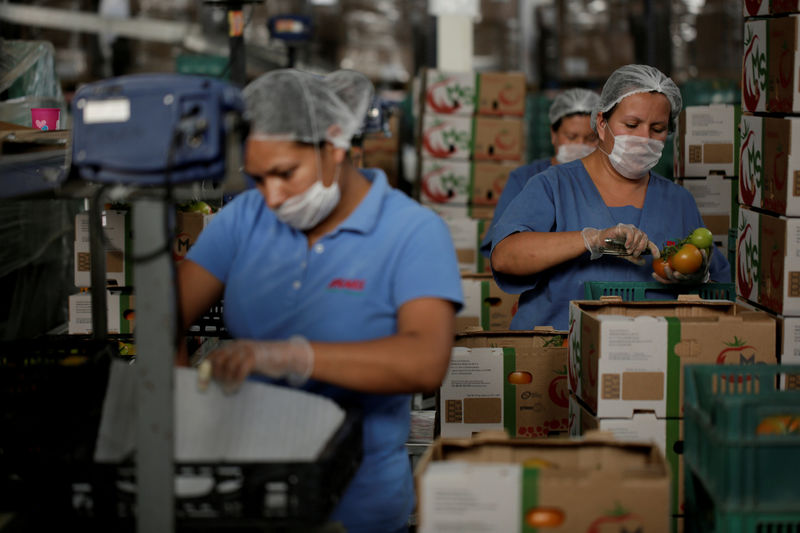MEXICO CITY (Reuters) - Mexico's economic expansion slowed slightly in the second quarter as expected on the back of a contraction in the oil and gas sectors as well as construction, official government data showed on Tuesday.
Gross domestic product grew 0.6 percent in the April-June period from the previous three months, according to the INEGI national statistics agency. That compared with growth of 0.7 percent in the first quarter.
Mexico's economy has been more resilient this year than expected, as fears that U.S. President Donald Trump could follow through on threats to impose punitive tariffs on Mexican-made exports have not materialized.
"Expectations for year-end have improved, a reflection of the favorable performance of the domestic market, the reactivation of external demand and greater confidence in the strength of the relationship with our main trading partner," Mexico's Finance Ministry said in a statement.
Uncertainty surrounding the renegotiation of the North American Free Trade Agreement (NAFTA), which underpins some $1 trillion in trilateral trade between the United States, Mexico and Canada, has also fueled concerns about growth in Latin America's second-largest economy.
Negotiators from the three countries wrapped up their first round of talks on Sunday to revamp the trade pact, vowing to keep up a pace of negotiations that some involved in the process say may be too fast to bridge deep differences.
The Finance Ministry added that it will update its current estimate of 2017 GDP growth of between 1.5 percent and 2.5 percent when it presents its 2018 fiscal budget proposal to Congress. It has until Sept. 8 to do so.
In annual terms, GDP expanded 1.8 percent in the second quarter compared with a year earlier.
The growth figures matched forecasts in a Reuters poll as well as the government's preliminary estimates published on July 31.
"Going forward, we expect growth to moderate and the engines of growth to rebalance, with higher contributions from manufacturing and net exports and less thrust from services and private and public consumption," Goldman Sachs (NYSE:GS) economist Alberto Ramos said in a note to clients.

Ramos added that uncertainty surrounding the NAFTA renegotiation and Mexico's 2018 presidential election will likely continue to be a drag on activity.